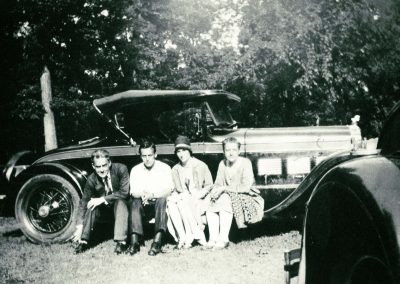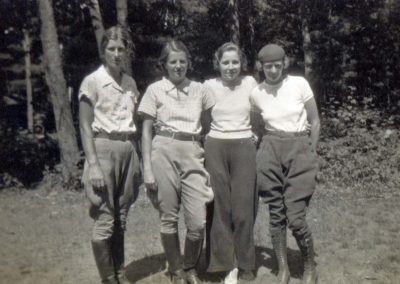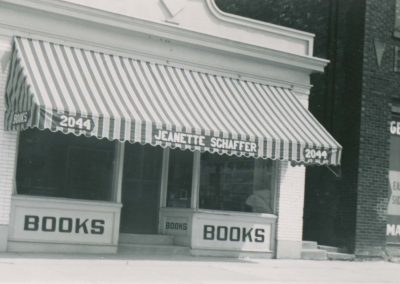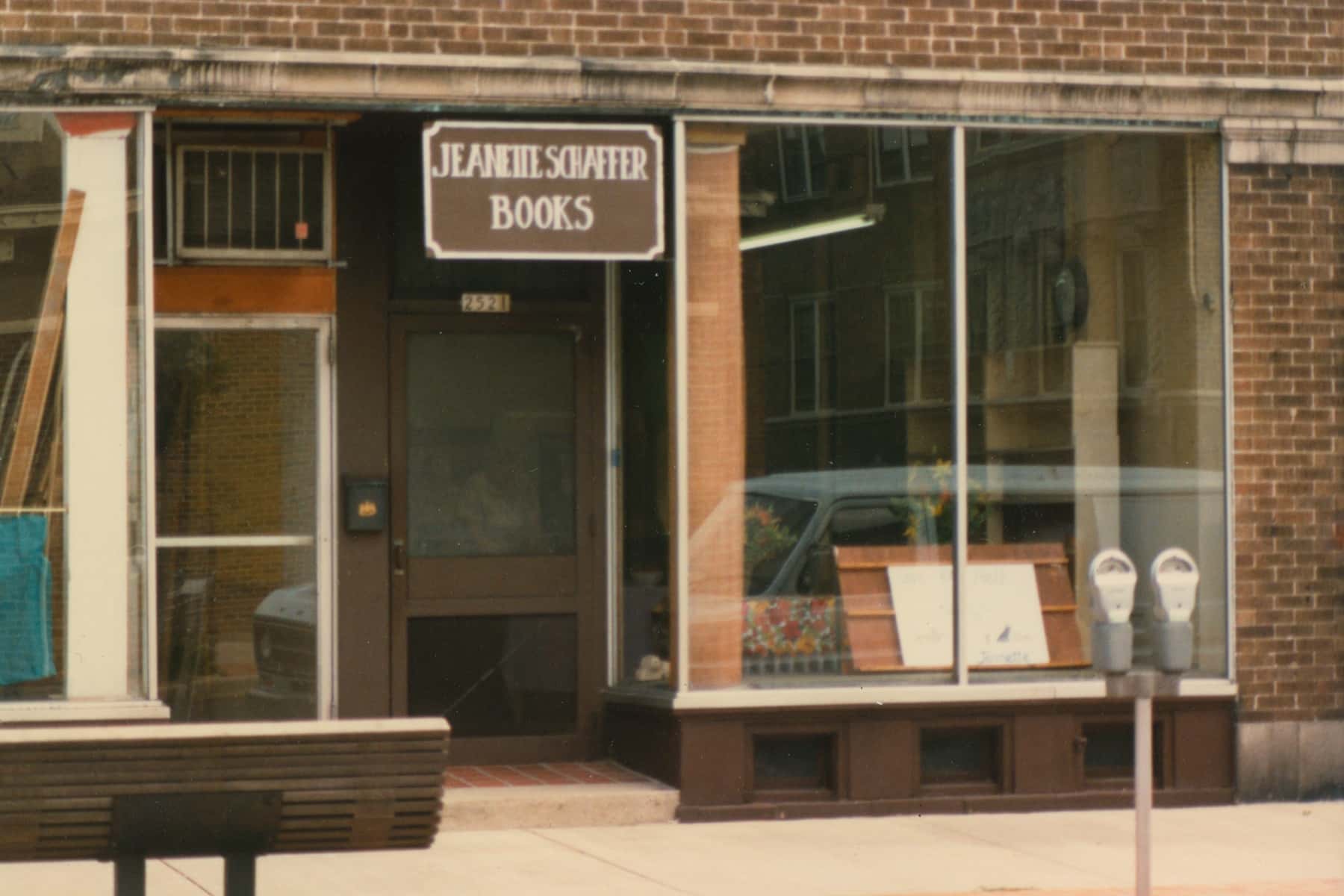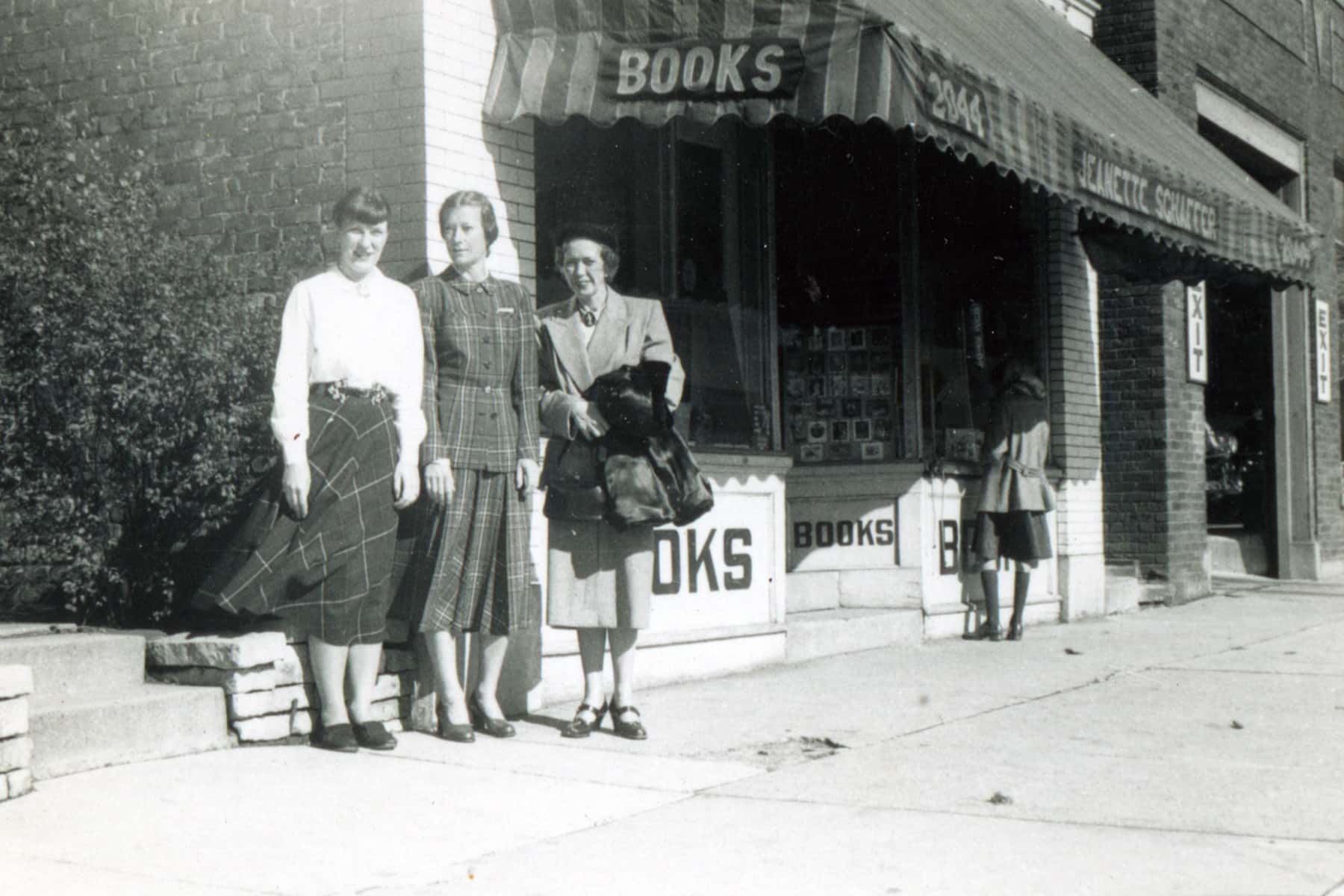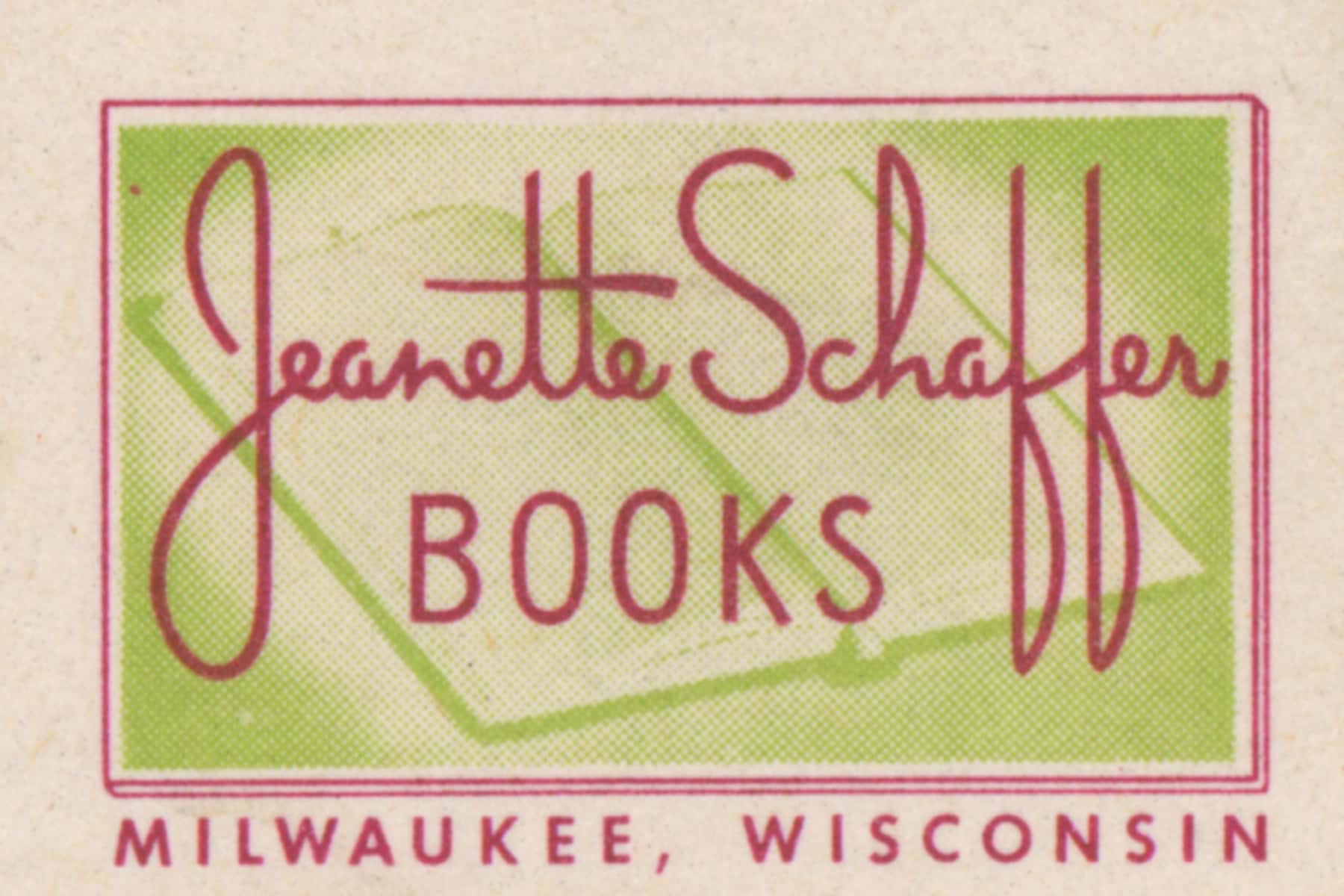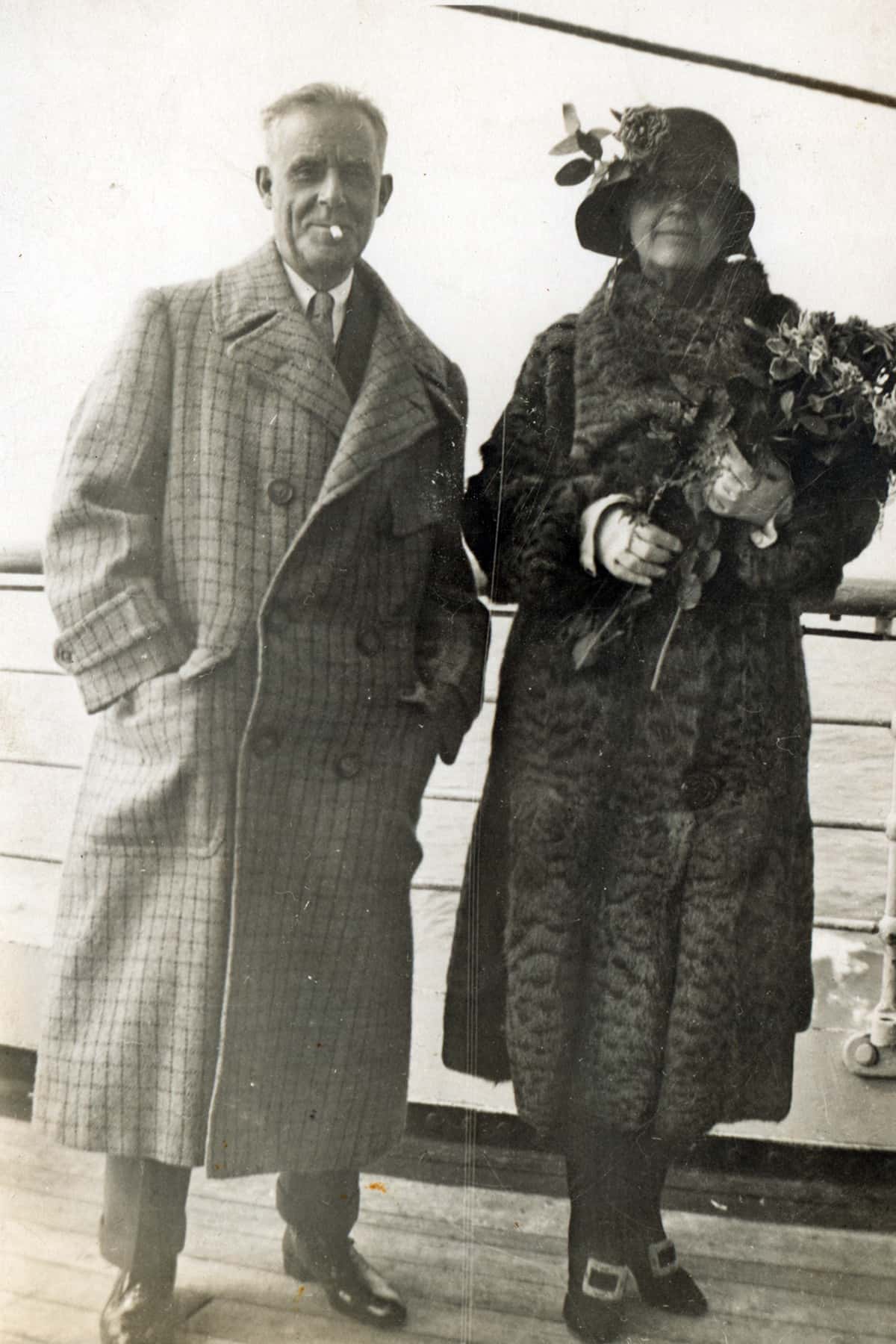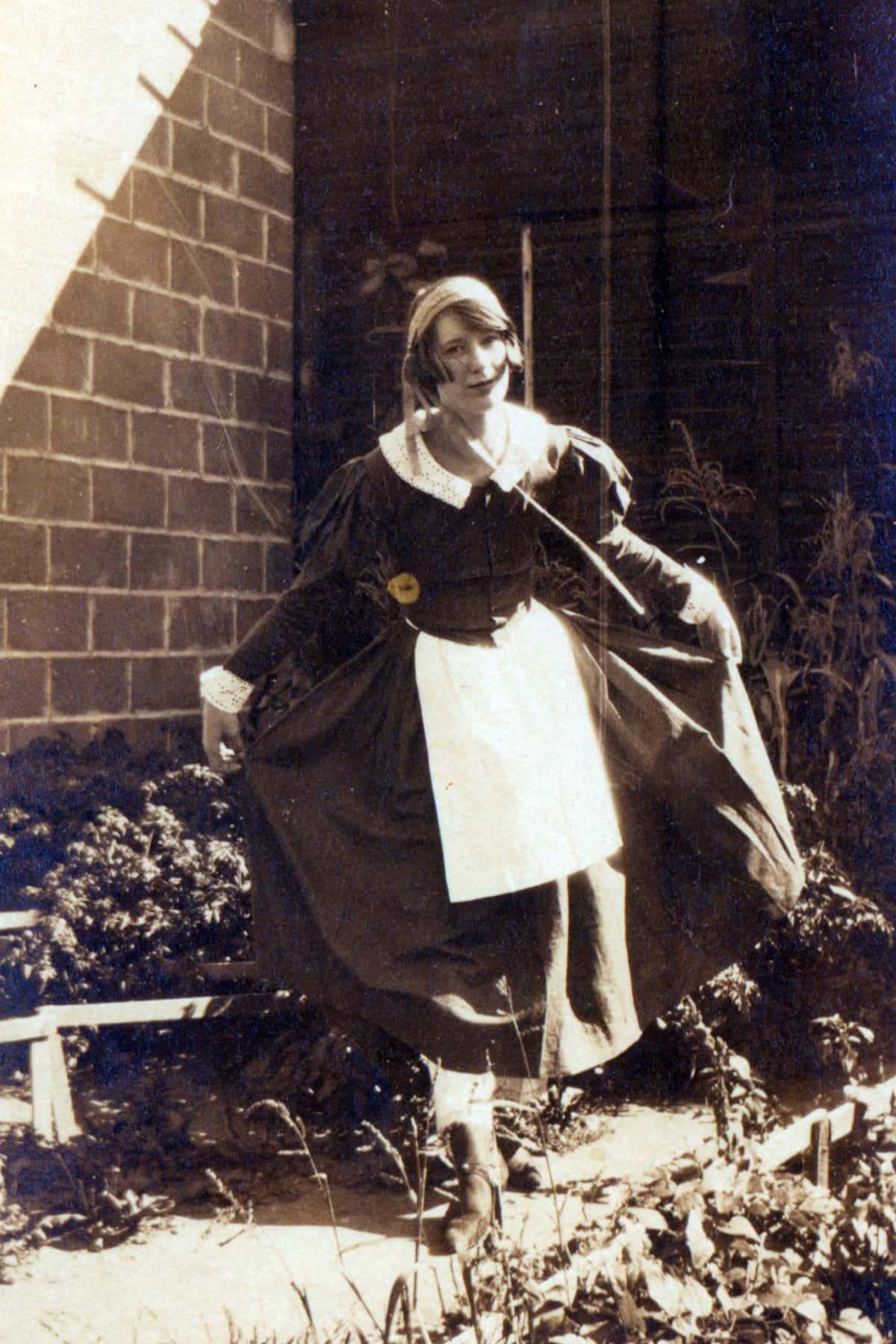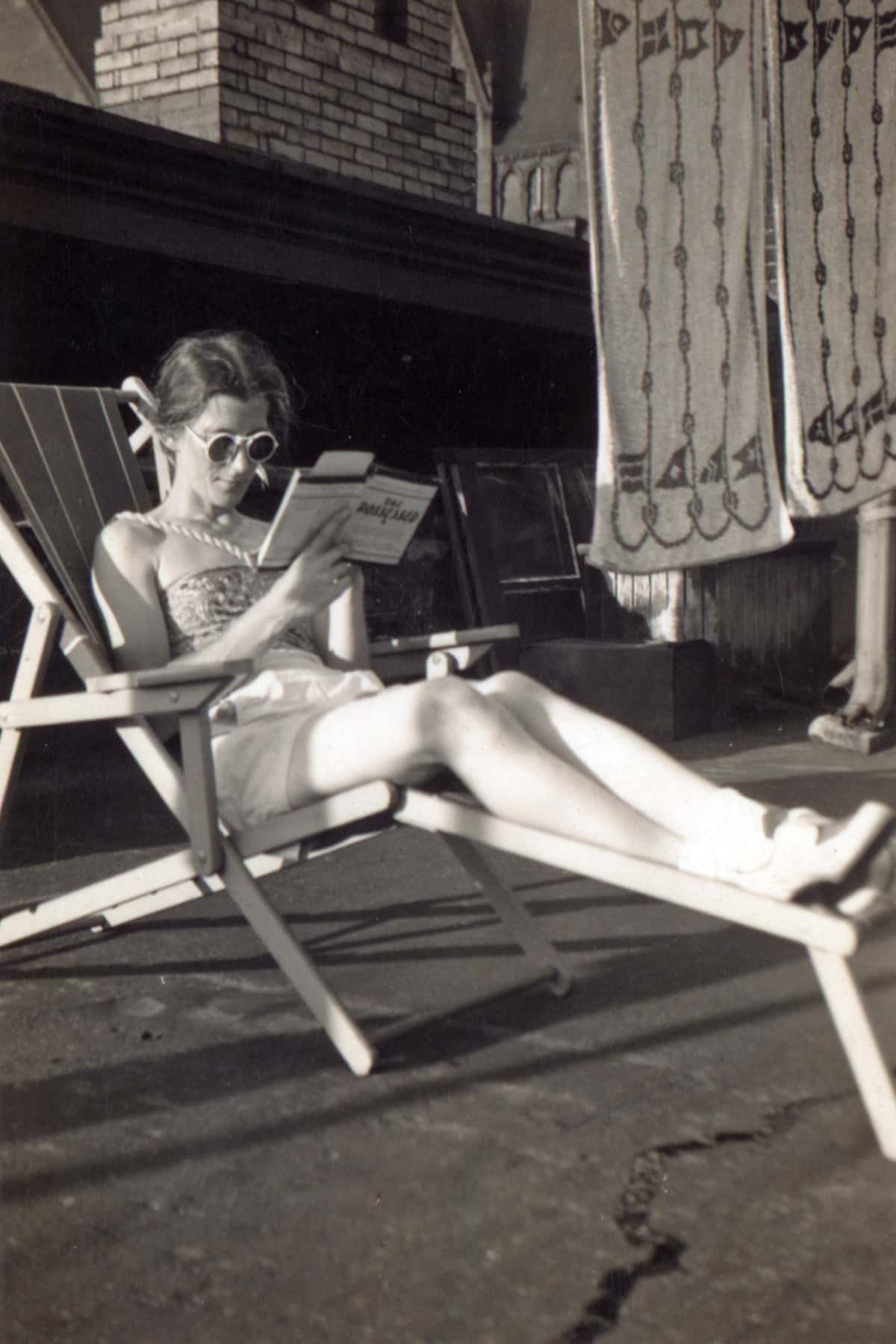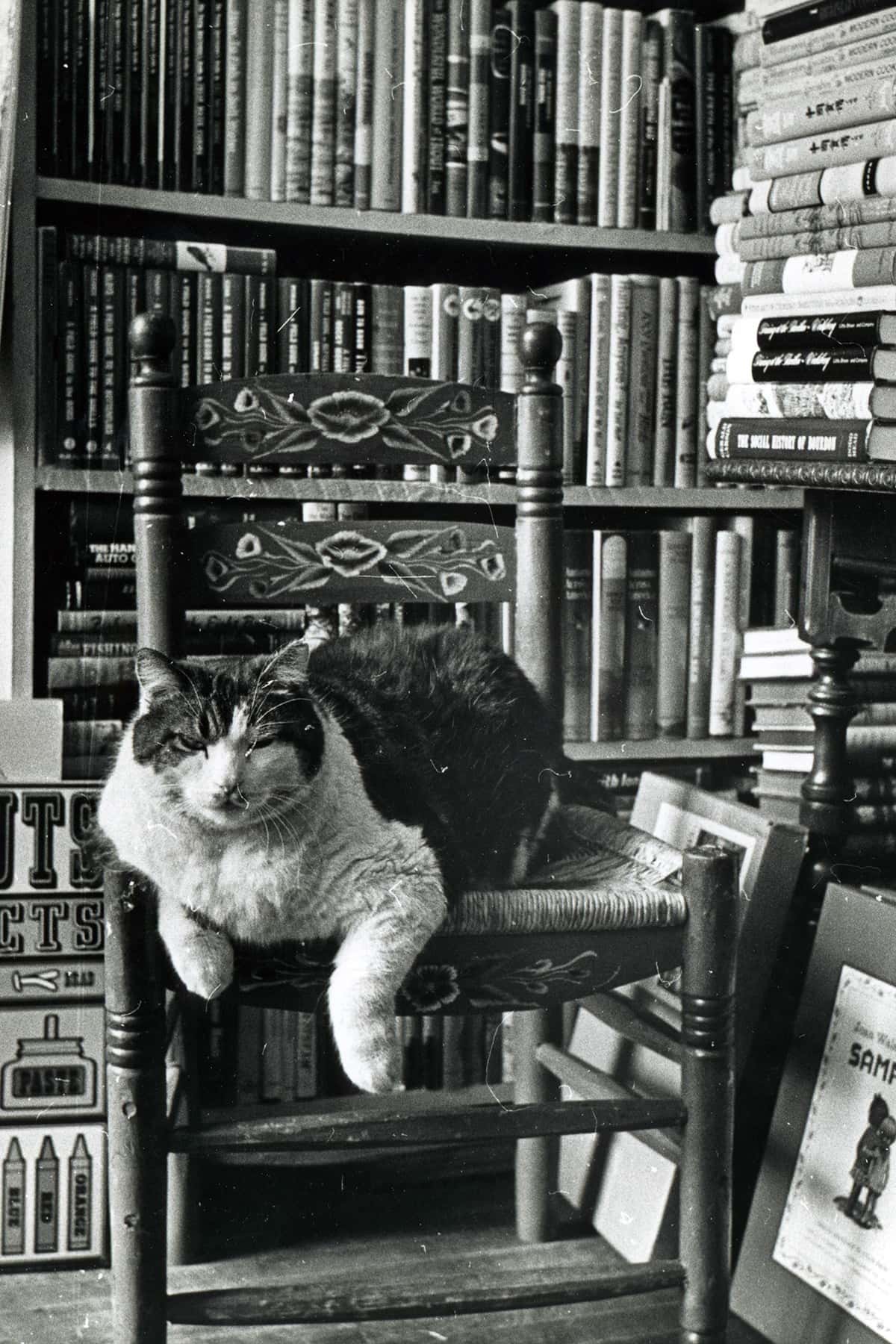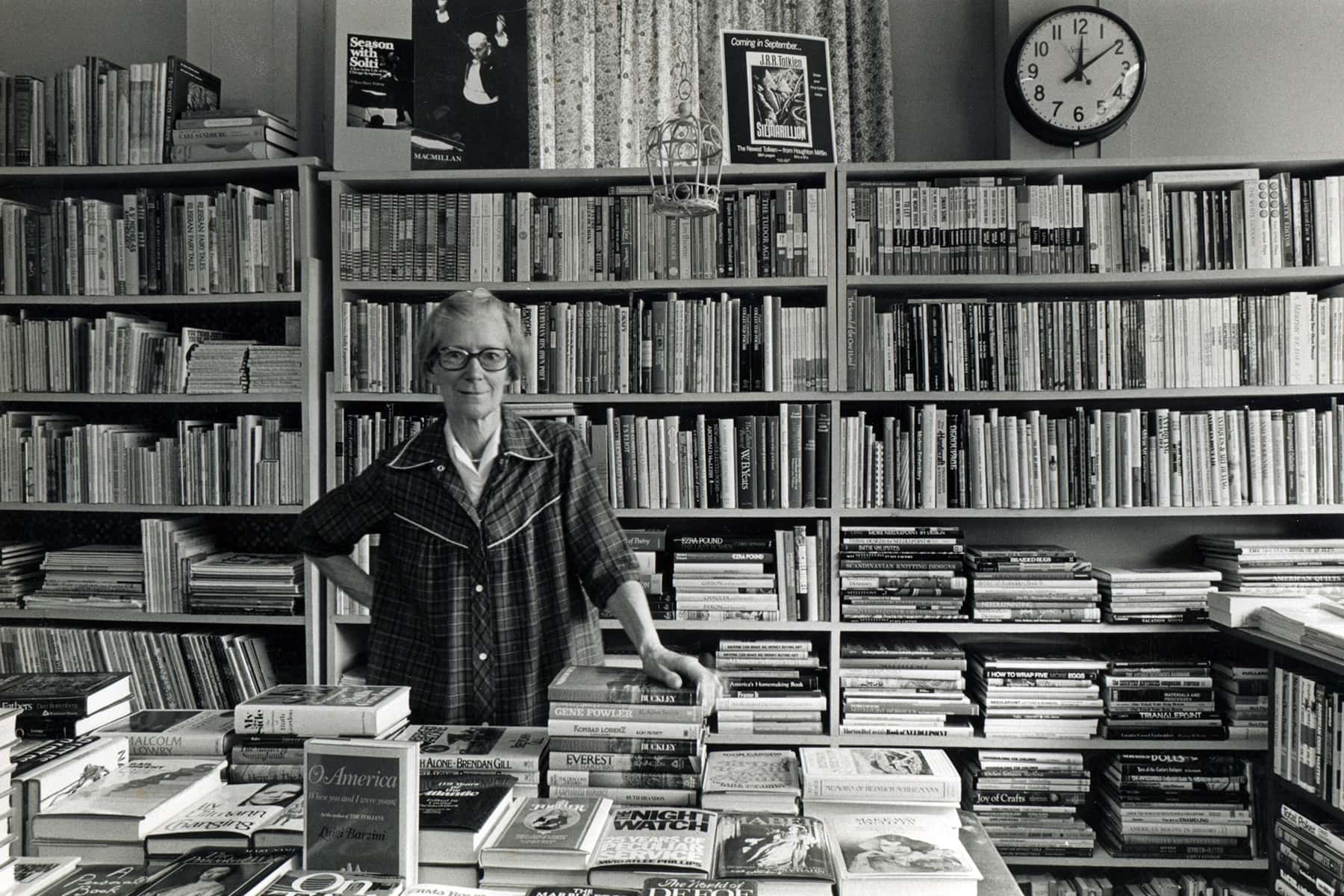
History is no longer thought of as the realm of larger-than-life people, doing important things to notable ends. The fabric of history is tightly woven with a myriad of stories of people who live to the fullest and leave their own indelible marks on their community.
The stories of small businesses and the people who operate them are one of the important components of the fabric of Milwaukee history. What could be a better opportunity to recognize these stories than during the start of the holiday shopping season, especially for Small Business Saturday, on November 27.
One such story is that of my aunt, Jeanette Schaffer, and Jeanette Schaffer Books.
“A bookseller is a dedicated person. He is not interested in money as such. Neither is he interested in the usual trappings of money. He is person driven by a feeling for books. Frequently he is a scholar, more often a student, but always a lover of books. Sometimes he sells books that he likes at no profit to him or even at a loss; and he gives away books for nothing… He enjoys sharing the love of books with his customers. He is a unique person who finds in bookselling a way of life that gives him pleasure.”
Except for having to replace the pronoun “he” with “she,” this excerpt from the article Bookselling: One of the Lost Professions published in the February 1, 1960, edition of Publisher’s Weekly perfectly describes the life and work of Milwaukee bookseller Jeanette Schaffer.
Yet nothing about her origins and background would have signaled a passion for the written word nor as a career as a book dealer. Born Jeanette Maude Schaffer on December 28, 1906, to Frank and Cora Schaffer, Jeanette was the oldest of eight children and raised in a household that was both spartan and transitory.
Frank Schaffer Sr. held a variety of machinists jobs including “brass finisher, machine handler, and monitor.” He ultimately attained a foreman position at the Rundle Spence Manufacturing Company, a premiere manufacturer of plumbing fittings. Cora managed the household and supplemented the family income with additional laundry work.
The Schaffers moved a total of nine times between 1910 and 1924, much of it during Jeanette’s grammar and high school years. Yet despite the tumult of the frequent relocations, all within areas of the city regarded at the time as marginal, she was able to maintain a balance between family responsibilities, mainly attending to her younger siblings, and schoolwork that carried her through to graduation in 1924 from Milwaukee’s Lincoln High School.
And it was in the academic environment that her love of art, theater, and the written word flourished, as evidenced by her participation in theater productions, and various humanities clubs.
Immediately after graduation, Jeanette embarked upon her career in the book trade at one of Milwaukee’s oldest and most recognized book dealers, the Des Forges Book Store, located at 427 E. Wisconsin Avenue. A prestigious firm, founded by French immigrant George Des Forges in 1870, by 1925 the company had been under the capable direction of the founder’s son, George Willoughby Des Forges.
“G W” took over the reins in 1910 after the death of George Sr., and it was during his tenure that Jeanette learned her trade. Starting as an entry level clerk, she would work her way up to assistant buyer by 1936. Not bad for a kid from Lincoln High School with no college experience.
Jeanette’s work at Des Forges offered exciting opportunities for a young woman of working-class origins, and she wasted little time immersing herself in the vibrant and intoxicating culture of her new situation in Downtown Milwaukee. Here she was able to embrace the world of ideas, prose, plays, and poetry to satiate her yearning for literature, theater, and the arts.
Her work on the sales floor also introduced her to many of Milwaukee’s most prominent business, society, and cultural leaders. Blue Bloods, “swells,” students and intellectuals, the clientele of Des Forges exposed her to the refinements of high society and the intelligentsia – as well as the hedonism of the “Roaring Twenties.” Jeanette was to become as comfortable on horseback as she was in a rumble seat, as relaxed at a recital as she was at a speak-easy.
In 1928, Jeanette experienced an event that for most young women of the era meant an end to any idea of independence or of a professional career. On October 10 of that year, Jeanette gave birth to a daughter, Elenora Joan. Known to the family as Joan, she was conceived out of wedlock and under circumstances that remained forbidden to discuss. It was a source of division in the Schaffer family for a generation.
Putting aside the details of the relationship that brought Joan, Jeanette faced the daunting task of working at Des Forges while pregnant. Fortunately, she had secured a position in purchasing which removed her from direct contact with customers. After her second trimester, she obtained temporary lodging in Wauwatosa. Both measures allowed her to maintain the social propriety required at the time for an unmarried, pregnant woman.
Jeanette’s career continued its upward trajectory after Joan’s birth, made possible in part by the decision by Frank and Cora Schaffer to take the baby in and raise her as if she was their own child. In this arrangement, Frank and Cora became more like parents than grandparents. Although fortunate for Jeanette, it was a decision most responsible for later acrimony within the family.
However, the reality was that Jeanette’s income from Des Forges had become a significant economic asset to the Schaffer household prior to Joan’s birth. It was something that Frank and Cora wished to retain. My grandfather had steady work as a foreman at Rundle-Spence, even during the Great Depression when he was one of a handful of experienced employees retained by the company, but Jeanette’s income proved to be a welcome addition to the family budget. The decision to accept another child into the house was not a difficult one to make.
Their decision was affirmed when in 1936, Jeanette received a significant promotion to the assistant buyer position at Des Forges. This position expanded her work responsibilities, increased her income, and correspondingly her ability to significantly contribute to the Schaffer household.
The Schaffer’s moved to 1638 N. Astor, in the Brady Street neighborhood in 1936, and to the permanent family home at 2820 N. Murray in the decidedly middle-class Murray Hill neighborhood in 1940. Their seemingly endless string of moves in the city’s rundown, near North Side were a thing of the past.
With her new position as assistant buyer for Des Forges books came more responsibilities. These included travel to publishing houses, large and small, in New York, Chicago, and San Francisco, attendance at publishing trade shows, meeting authors like Munro Leaf, wrangling deals with book salesman, and overseeing the placement of orders.
With the start of World War II, she saw three of her siblings go off to war and started a lifelong habit of giving that she continued throughout her career. Jeanette arranged for shipments of books to be sent state-side and overseas to her brothers. In written correspondence, her brother George mentioned how much he and his comrades appreciate the books as a reminder of home. In February of 1944 Frank Schaffer died. “Poppa” was gone, and Jeanette now stepped into the leadership role of the family, in every sense the matriarch.
After World War II Jeanette began the process of charting her own course in the book trade. With legal counsel and an investment from a close friend and confidante – prominent Milwaukee lawyer Walter D. Corrigan Sr., she opened Jeanette Schaffer Books in the Fall of 1947. The first store was located at 2044 E. North Avenue, adjacent to the garage of Heiser Ford. The building is no longer there, and the location is now contained within the footprint of the Whole Food Store complex anchored at the intersection on North Avenue and Prospect. But from 1947 to 1951, Jeanette and her daughter Joan Nolte established clientele and carved a niche in the Milwaukee retail book market.
As in any new business, she brought over customers from her former employer Des Forges books, but a new clientele was drawn to the store for its selection of children’s books – Jeanette’s specialty, and the array of glossy print coffee table books which at the time were popular for both content and décor.
Drawing from her experience at Des Forges, Jeanette initiated telephone orders and a delivery service that was popular and profitable. In 1952, Jeanette moved her business further north, nearer to the Downer Avenue Business district. Located at 2521 E. Belleview, Jeanette Schaffer Books would serve Milwaukee’s East Side, East Town, and North Shore neighborhoods.
In the decades following, many East Side residents living between Murray Avenue and Downer Avenue would have seen Jeanette, accompanied by one of her pet dogs, with her two-wheeled grocery cart in tow, making her daily circuit to and from the bookstore. In addition to the wide assortment of books available at the store, Jeanette became something of a local celebrity to customers for her delightful, down to earth manner. Not so delightful though, that she would stand for any nonsense from the infrequent rough character that would enter her domain.
On one occasion, she led a gun toting, would-be robber out of the store after first admonishing him with, “Oh put that thing away.” Growing up with five brothers in some of the roughest parts of Milwaukee evidently paid off. The store also gained somewhat of a reputation among customers and book salesmen for her menagerie of four-legged “employees.” Hansi the dachshund and Boswell the cat were the first generation, followed by a burly, white and black feline named Alfred – after publisher Alfred Knopf, who was both greeter and night watch, and except for the odd veterinary visit, never left the shop.
According to Jeanette, Alfred – the cat – was not a “cat person,” therefore he could not cohabitate with her house cats. Alfred’s daytime “coworker” Maggie, was a feisty grey cairn terrier named after Anthony Trollope’s character Maggie Brattle.
The Late 1970s signaled the pinnacle of Jeanette Schaffer’s success as a book dealer and businesswoman. However, by this time the trade itself had undergone changes that would herald the demise of many small independent bookstores.
In the introduction to his wonderful memoir, Fifty Years in My Bookstore, Harry Schwartz discussed the rise of the bookstore chains, spawned by post World War II shopping centers and by 1970, the shopping mall. He also lamented the negative impact of the large, national concerns on local independent bookstores.
The introduction of B. Dalton bookstores at Mayfair, Northridge, and Southridge, and Walden Books at Brookfield Square, Capitol Court, Northridge, and Southridge began to siphon off business from both Downtown and Jeanette’s East Side store. The economic malaise of the late 1970s and early 1980s further increased the stress on small bookstores like Jeanette’s.
Perseverance was always one of Jeanette’s better qualities and accordingly Jeanette Schaffer Books carried on in the face of these challenges. However, by 1984 with two long time employees retiring and Jeanette nearing seventy-eight, she decided not to renew her lease at 2521 E. Belleview Place.
Her final sale was at the end of July. Any books she was not able to sell, she donated to the Milwaukee Mental Health Complex, rounding off a lifetime of donating books as well as selling them. By the end of August 1984, the thirty-seven-year reign of the woman David Schwartz once described as, “a doyenne of the bookselling community” had come to an end. Less than four years after retiring, Jeanette Maude Schaffer passed away in the house she had lived in for forty-four years.
If you find yourself on Belleview Place, in front of what is now Henry’s Pub and Grill, listen closely. You may just hear the echoes of Alfred, Maggie, and Jeanette Schaffer greeting a customer in a bookstore lost to time, but not to memory.
Despite the dire predictions of the end of the independent bookstore, there are several in Milwaukee still thriving. This holiday season, and after, please consider patronizing these fine establishments.
Steve Schaffer
Milwaukee County Historical Society

